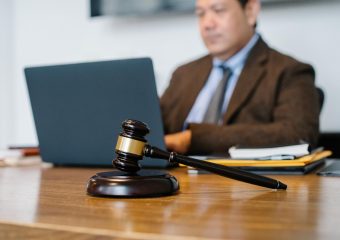Can Recorded Conversations Impact Your Divorce or Custody Case? Family Lawyer Atlanta Breaks It Down
In today’s digital age, it is not uncommon for individuals to record conversations, whether in person or over the phone, as a means of gathering evidence or protecting themselves in legal disputes. However, when it comes to divorce and custody cases, the use of recorded conversations can have significant implications on the outcome of the case. Family Lawyer Atlanta is here to break down the legal implications of recorded conversations in family law cases and provide tips for handling them effectively.
The Legal Implications of Recorded Conversations in Divorce and Custody Cases
In divorce and custody cases, recorded conversations can be used as evidence to support or refute claims made by either party. However, the admissibility of recorded conversations in court can vary depending on the state’s laws regarding recording conversations without consent. In some states, it is illegal to record a conversation without the consent of all parties involved, while in others, only one party needs to consent to the recording.
If a recorded conversation is obtained illegally, it may not be admissible in court and could potentially harm the party who recorded it. On the other hand, if the recording was obtained legally, it can be used as evidence to support a party’s claims regarding issues such as child custody, spousal support, or division of assets. It is important for individuals to consult with a family lawyer to understand the legal implications of using recorded conversations in their case.
How Recorded Conversations Can Influence Court Decisions
Recorded conversations can have a significant impact on court decisions in divorce and custody cases. For example, a recorded conversation where one party admits to infidelity or abusive behavior can be used to support a claim for divorce or to obtain a restraining order. Similarly, a recorded conversation where a parent expresses concerns about the other parent’s ability to care for the children can influence a custody decision.
In some cases, recorded conversations can also be used to impeach a party’s credibility if they contradict statements made in court. For example, if a party testifies that they have never been violent towards their spouse, but a recorded conversation proves otherwise, it can undermine their credibility and harm their case. It is essential for individuals to be mindful of what they say in recorded conversations and how it can impact their case in court.
Tips for Handling Recorded Conversations in Family Law Cases
When it comes to handling recorded conversations in family law cases, there are several tips that individuals should keep in mind. First and foremost, it is crucial to consult with a family lawyer to understand the legal implications of using recorded conversations as evidence in court. A family lawyer can advise on the admissibility of recorded conversations and how they can be used strategically in a case.
Secondly, individuals should be cautious about recording conversations without consent, as it could potentially harm their case if the recording is deemed illegal. If a party wishes to record a conversation, they should ensure that it is done legally and in compliance with state laws. Additionally, individuals should be mindful of what they say in recorded conversations, as they can be used against them in court.
Consulting with a Family Lawyer in Atlanta for Guidance on Recorded Conversations
In conclusion, recorded conversations can have a significant impact on divorce and custody cases, influencing court decisions and shaping the outcome of the case. It is essential for individuals to consult with a family lawyer in Atlanta for guidance on how to handle recorded conversations effectively and strategically in their case. A family lawyer can provide valuable insight into the legal implications of using recorded conversations as evidence and help individuals navigate the complexities of family law cases. By seeking guidance from a family lawyer, individuals can ensure that their rights are protected and that they are equipped to present their case effectively in court.
Atlanta Divorce Law Group (ADLG) was founded with the mission of helping clients make informed and empowered life decisions that lead to a life without regret–what the firm calls Happily Ever After Divorce®. The firm’s team helps clients make decisions based on their own values and priorities, guiding them to discover what truly matters in times of conflict. ADLG’s end goal is not just divorce, but clarity, peace and security for their clients’ lives. atlantadivorcelawgroup.com







